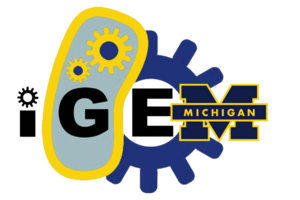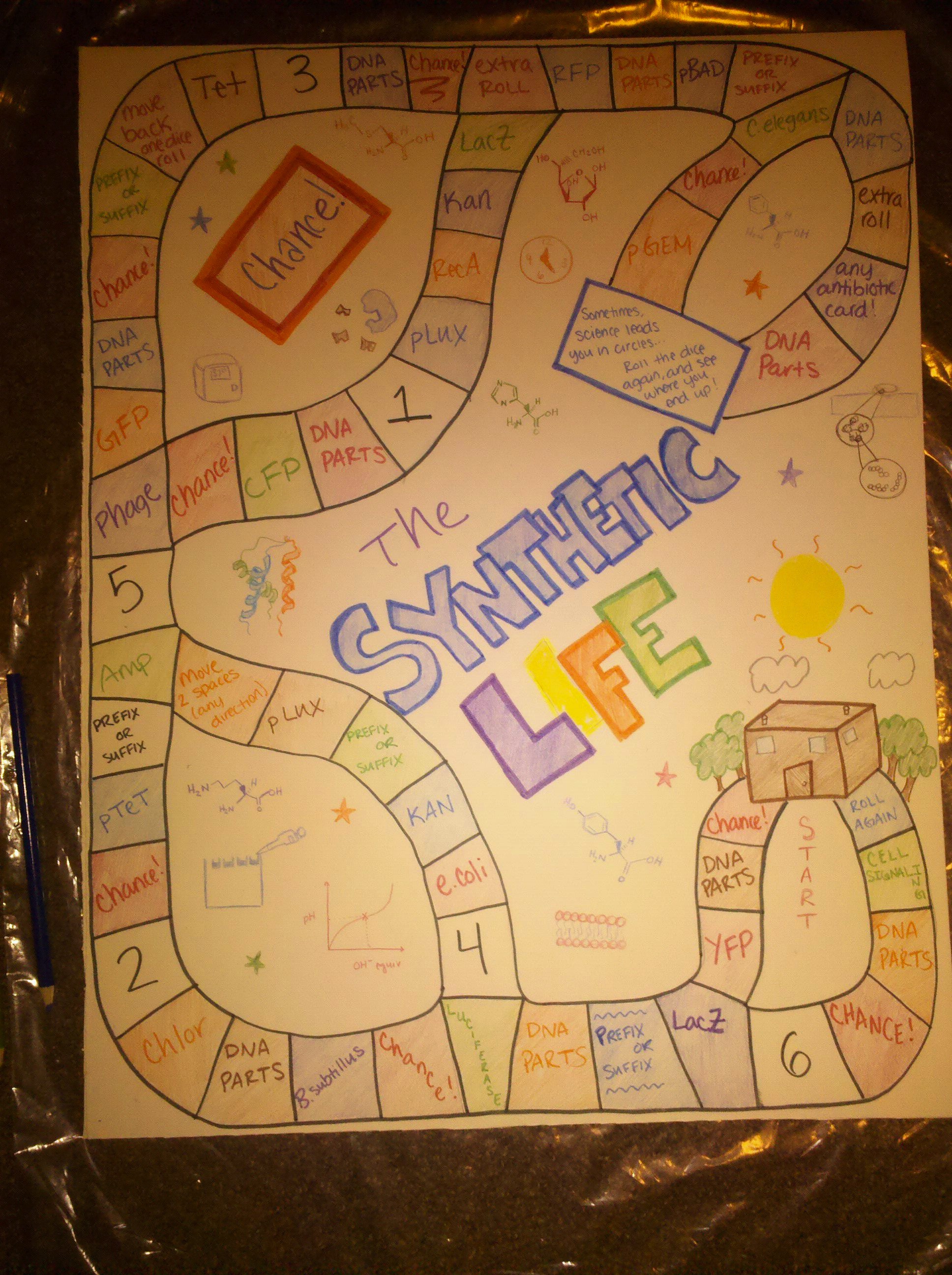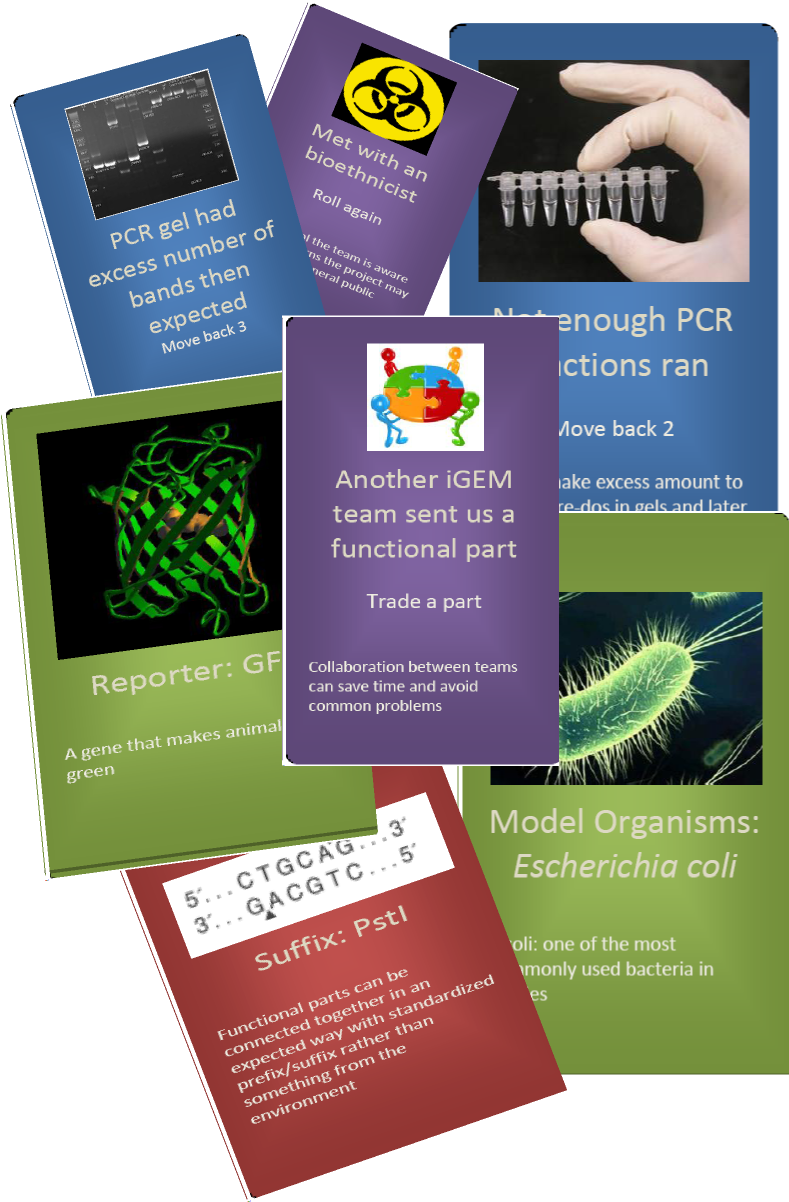Team:Michigan/Human Practices Overview
From 2011.igem.org















Human Practices
People are commonly afraid of change, but why? This fear may stem from the lack of control over a changing situation or the lack of knowledge about that topic. Our Human Practices work for 2011 is mainly public outreach; we aim to help the public with fear of change associated with lack of knowledge about synthetic biology. We hope to decrease confusion, stereotypes, and any negative stigmas linked to synthetic biology. We stress safety and ethics in all of our work - for we acknowledge that non-iGEM people may be concerned with how ethical our work is [see our Safety page on this wiki!]
Also, we desire to increase the interdisciplinary and collaboration components of iGEM in order to reach a wider range of audience.
Goals
1. Surveying
First we needed to determine current thoughts on synthetic biology from the general public in Ann Arbor. We created surveys (which can be seen under the Human Practices notebook on this wiki) and also here:
...and distributed them to people in the area over the summer. As a second sub-project, we also created a separate version of the survey to distribute to iGEM members.
Ideally we wanted to make the process as informal as possible without negatively affecting our data. We geared questions in a manner to best predict how different environments affect peoples’ synthetic biology knowledge.
2. Board Game
We wanted to turn complex ideas into simple, enjoyable practice. Everyone can relate to the game objective – a race to the finish – however, a finished product represents this finish line.
We also wanted to incorporate the main ideas of decisions and applications (scientific community and other careers) of synthetic biology into the game structure. We hoped that playing this game could also to make the synthetic biology terms more common in conversation. The more you are familiar with a concept or topic, the less afraid you are of change towards that topic. Another goal was to educate the player about synthetic biology concepts – or to reinforce synthetic biology material that the player already knows.
3. Collaborative Efforts
We sent out e-mails to other iGEM teams, requesting help with our surveys and offering help towards any aspect of their project. In our mindset, strong collaboration leads to great results - especially for the iGEM competition since every team is using past work from other teams. If we are building off of the physical product of other teams, why not share our ideas with each other also? We were successfully able to hold a teleconference with Team Delft, during which we introduced the teams, discussed our projects, and performed troubleshooting towards each others' issues.
So how did this all turn out?
Our notebook contains these same links with relevant information for the board game:
1. The image of the board game actual board (left) and the playing cards (right) can be viewed here: [3]:
An copy of the gameplay manual can also be seen here:
[4]
2. Survey Results (this can be seen in more detail in the Human Practices notebook):
47 Total: 22 Female, 25 Male.
Ages ranged from 14 to 67
Occupations: 2 high school students, 16 University students, and
18 of other occupations.
[More than one response was allowed, so this is calculated by % for purposes to compare percentages for each factor)
Q: Where do you get news from?
76.6% Internet
34.1% Print Source
27.7% TV
19.1% Radio
14.9% Word-of-the-Mouth
Q: What type of news do you pay attention to?
45.6% World
43.5% Local
43.5% Politics
36.9% Entertainment
32.6% Sports
23.9% Health
23.9% Sci/Tech
21.7% Business
17.4% Finance
15.2% Environment
Q: Have you ever heard of Genetically Modified food?
If so, what’s your opinion on it?
2 people: No.
Of the remaining,
15 – bad or negative opinions
10 – positive opinions
9 – neutral, no opinion.
7 – supportive, but addressed another related concern.
3 – uninformed or unsure.
Q: Have you ever heard of Synthetic Biology?
Could you describe a personal definition?
24 said No. 22 said Yes.
Q: How do you feel about genetic engineering?
16 – positive feelings, supportive, 13 – conditional; supportive “if and only if…” (e.g. “It’s good, but only if…”), 12 – negative feelings, 4 – unsure.
Q: Can you name any applications for bacteria in fields such
as medical, industrial, environmental, or others?
42 people Yes. Only 22 could elaborate.
Some Trends:
50% of the people we surveyed had never heard of "synthetic biology."
People were more knowledgeable about terms such as "genetic engineering" and "genetically modified foods."
They were also more positive about GE but more negative about GM foods.
Data does not suggest a correlation between opinion of genetic engineering and opinion of synthetic biology.
Based on personal definitions of synthetic biology, most seem to be fixated on the idea of a "creation of life."
Even if he/she had mentioned a concern, many used the word "necessary" to describe genetic engineering.
People who chose "internet" as their main method of receiving news were more likely to choose "everything" in terms of news types. "Science and Technology" was rarely chosen by itself.
Lessons Learned from Surveying: We were able to further narrow down the public's concerns and lack of knowledge on synthetic biology.
Public's Main Concerns:
Synthetic Biology must provide more advantages than disadvantages.
Must be strictly regulated.
Against "playing with nature."
Business practice ethics must be improved.
Must be careful with manufacturing process.
The producers must be fair.
Most of the public is also unaware of positive uses for bacteria.
In general, people are more wary of a less familiar term (e.g. synthetic biology)
than a more commonly heard term (e.g. genetic engineering), or one they are
More familiar with (e.g. “engineering.”)
We should do our best to educate others about synthetic biology. It seems most
people would be willing to support the field if they had a full understanding.
 "
"

